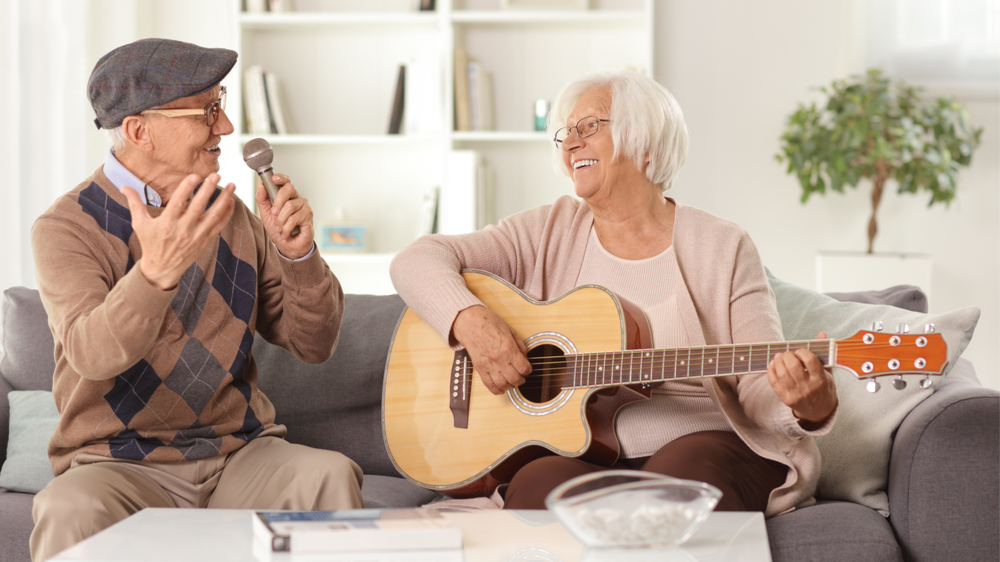Having a Hobby Might Lead to a Healthier Life
- The association was found across the world.

A new publication in Nature Medicine has provided evidence from multiple countries supporting the idea that older people who have hobbies are healthier and less likely to have depression.
Loneliness, social isolation, and hobbies
This paper begins with an explanation of population aging and its downstream consequences. The authors point out United Nations data showing that the proportion of people at least 65 years of age is increasing and note that older people experience social disorders that are less frequent in young people, such as loneliness and isolation, which are associated with health problems and earlier mortality [1].
The researchers also bring up the idea of healthy life expectancy, noting that increases in lifespan are not always associated with good health and that this places a growing burden on healthcare systems around the world. Therefore, they point to social activity hobby programs that have been promoted by governmental institutions as a way to potentially alleviate some of this burden.
While there has been substantial previous research on this general topic, including multiple specific social interventions [2-5], previous studies normally only focused on one country and one intervention at a time despite these various interventions sharing the same mechanisms of action [6]. Therefore, in order to determine the value of hobby-related interventions across nationalities and cultures, these researchers have combined results from five longitudinal studies spanning 16 nations and 93,263 people.
Broad representation
This meta-analysis did not have the same number of representatives from each country; Japan was the highest, with 57,051 participants, and Germany was the lowest at 966. The United States had 6,204, China had 1,611, and there were a large number of European countries with a few thousand each. On average, the respondents weer in their early 70s.
Hobby participation varied widely by country. While some European countries along with Japan had participation rates of 9 out of 10 or better, Italy and Spain had slightly more than half and China had somewhat over a third, although the definition of ‘hobby’ might have been different in that survey. As expected from respondents in this age group, more than three-fifths of respondents had lasting health problems. Seven out of ten participants were retired except those in China, Japan, and Spain.
Expected results
The results supported previous research. As expected, hobby engagement was associated with positive health outcomes, and fewer hobbyist participants were depressed. However, that association could go either way; for example, hobbyists could be less likely to be depressed and depressed people might have fewer hobbies.
Therefore, the researchers looked into time as a factor, examining measurements taken earlier and later in these cohort studies. After controlling for known confounders, this analysis found that continuous hobby engagement between the time points was associated with fewer negative outcomes at the later time point; hobbyists were less likely to get depressed and more likely to be in better self-reported health. This suggests that having a hobby improves mental and physical health, and this finding was corroborated by multiple statistical analyses. The specific type of hobby did not seem to significantly affect the results.
On the national level, hobby engagement was correlated with happiness, wealth, and life expectancy and negatively associated with income inequality.
Potential value
Like other lifestyle interventions, this will obviously not solve age-related diseases. However, rejuvenation interventions are not yet clinically available, and hobbies and other lifestyle interventions are available now. This research suggests that people with elderly relatives may help them live healthier lives by encouraging them to participate in social activities, regardless of where they might live.
Literature
[1] Holt-Lunstad, J. (2018). Why social relationships are important for physical health: A systems approach to understanding and modifying risk and protection. Annual review of psychology, 69, 437-458.
[2] Soga, M., Gaston, K. J., & Yamaura, Y. (2017). Gardening is beneficial for health: A meta-analysis. Preventive medicine reports, 5, 92-99.
[3] Clifford, A. M., Shanahan, J., McKee, J., Cleary, T., O’Neill, A., O’Gorman, M., … & Ní Bhriain, O. (2023). The effect of dance on physical health and cognition in community dwelling older adults: a systematic review and meta-analysis. Arts & Health, 15(2), 200-228.
[4] McCrary, J. M., Altenmüller, E., Kretschmer, C., & Scholz, D. S. (2022). Association of music interventions with health-related quality of life: a systematic review and meta-analysis. JAMA network open, 5(3), e223236-e223236.
[5] Daykin, N., Mansfield, L., Meads, C., Julier, G., Tomlinson, A., Payne, A., … & Victor, C. (2018). What works for wellbeing? A systematic review of wellbeing outcomes for music and singing in adults. Perspectives in public health, 138(1), 39-46.
[6] Fancourt, D., Aughterson, H., Finn, S., Walker, E., & Steptoe, A. (2021). How leisure activities affect health: a narrative review and multi-level theoretical framework of mechanisms of action. The Lancet Psychiatry, 8(4), 329-339.








